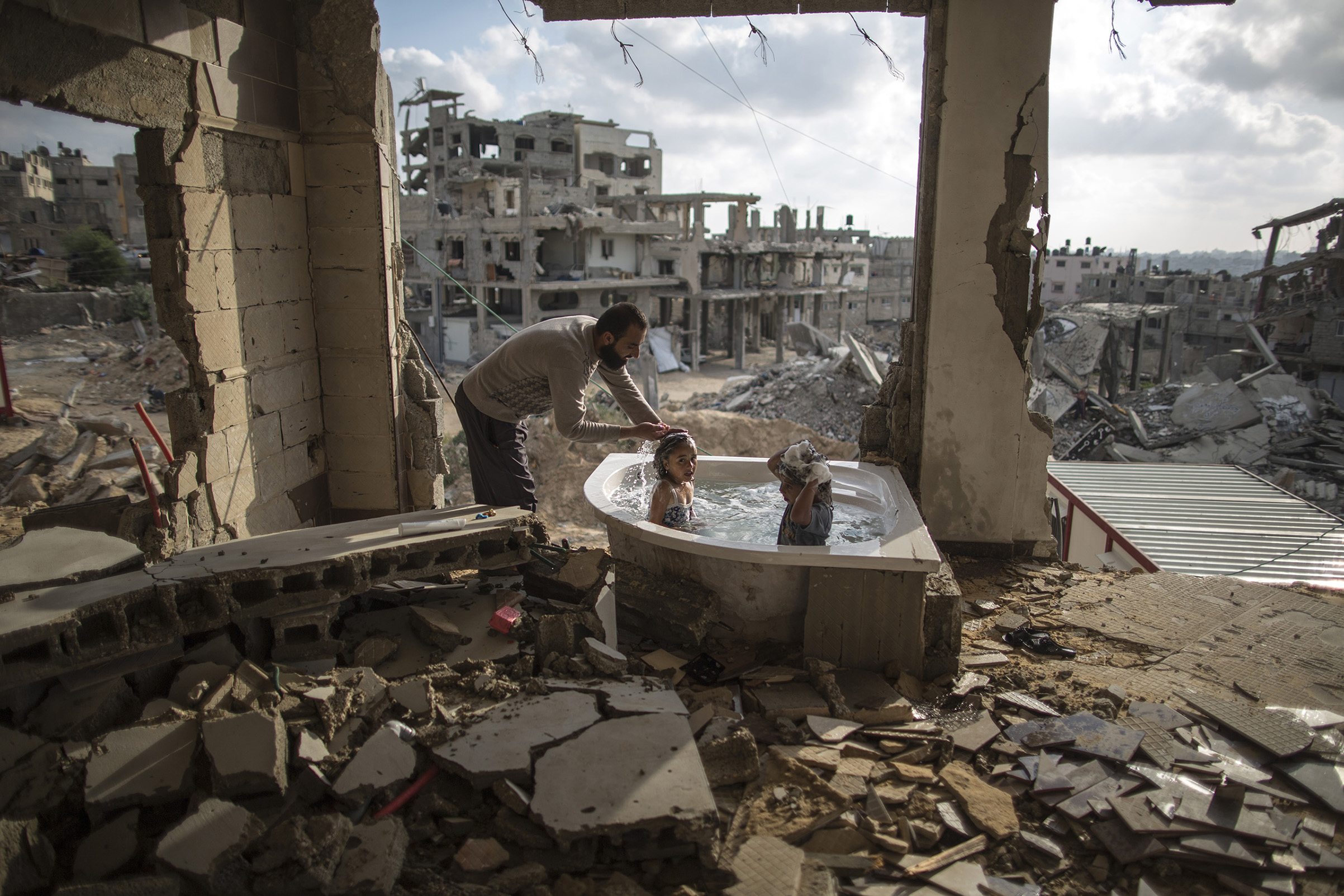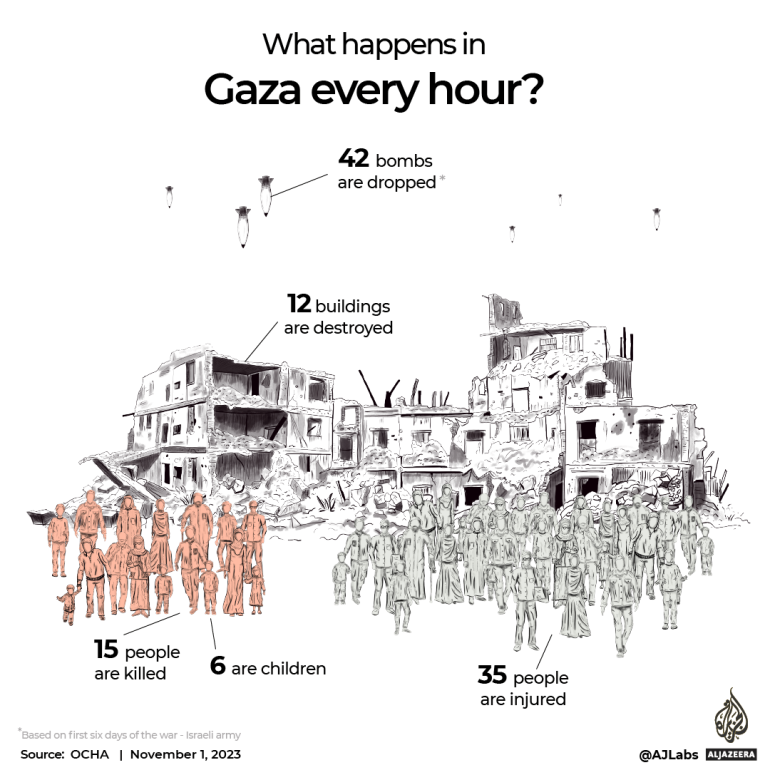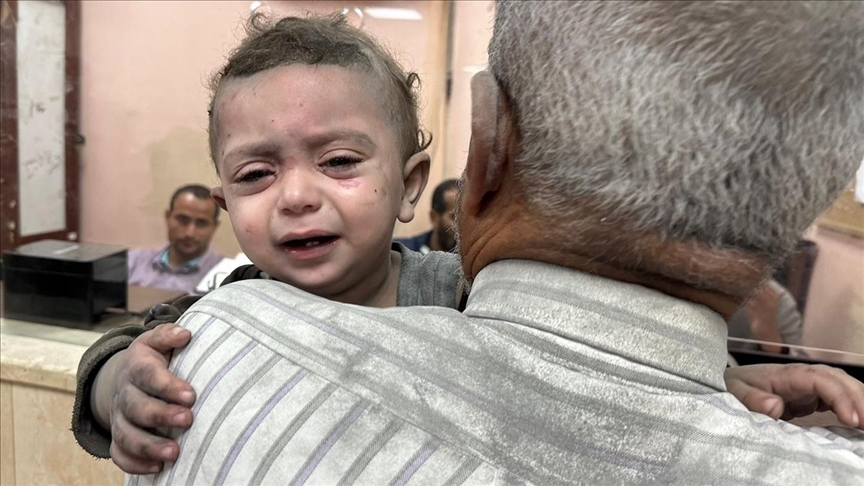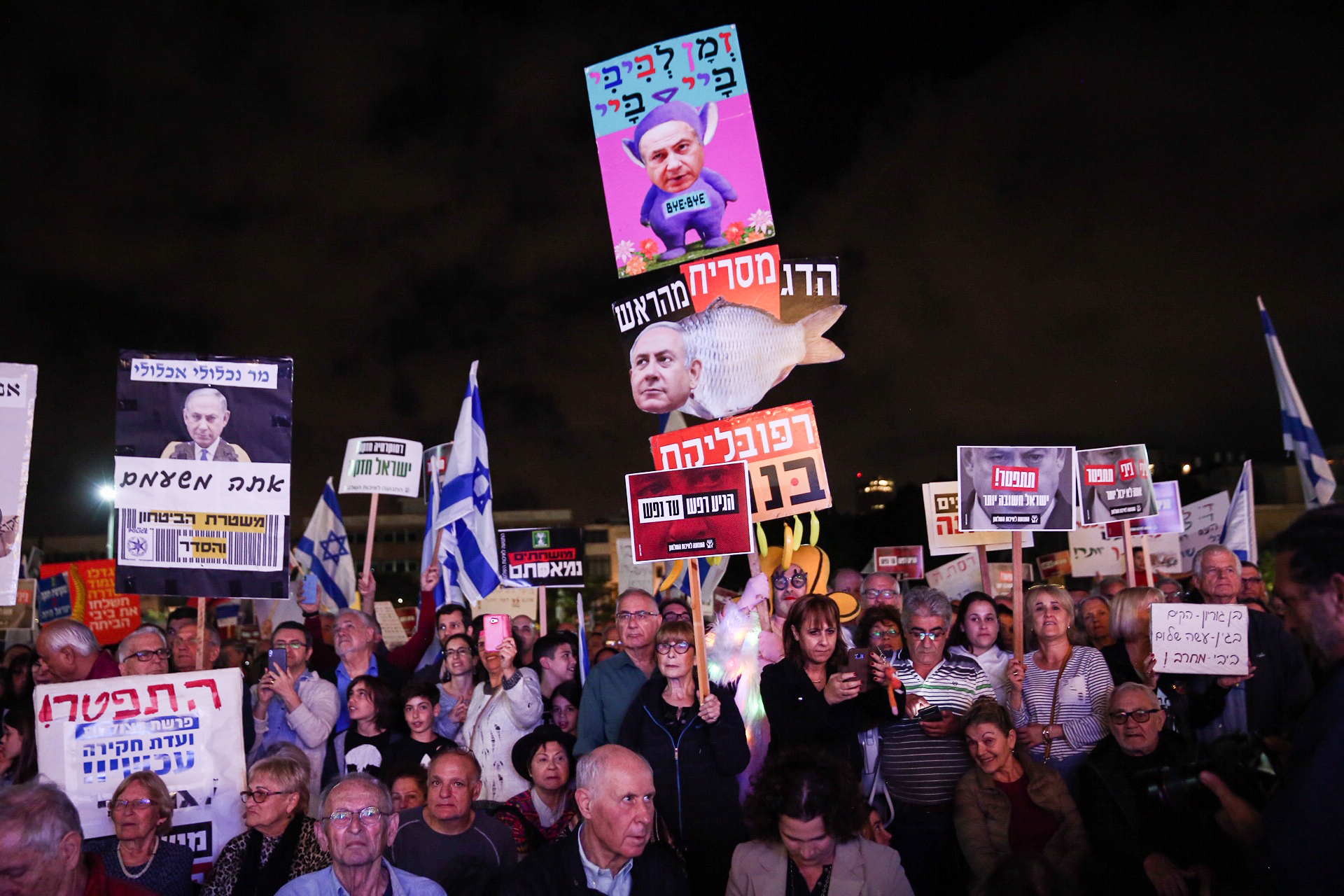On January 12, in a pivotal session at the International Court of Justice (ICJ), Israel presented its defence against South Africa's accusations of committing acts of genocide in Gaza, Al Jazeera reported. Against the backdrop of the ongoing conflict, the statistics reveal a grim reality, with nearly 24,000 lives lost in the enclave since October 7, tragically including almost 10,000 children, while thousands more remain unaccounted for, buried under rubble and presumed deceased. Israeli legal advisor Tal Becker told a packed auditorium at the ornate Palace of Peace in The Hague that the country is fighting a “war it did not start and did not want.”
Gaza genocide 2024: What sparked conflict?
On October 7, Hamas from Gaza initiated attacks in Israel that resulted in the death of approximately 1,200 Israelis, injuring thousands and taking an estimated 240 hostages. In response, Israel immediately launched counterattacks on Gaza.
Denial of access and implications
The UN report indicates a systematic denial of access by Israeli authorities, significantly impacting the ability to provide essential aid to the northern Gaza region. Such hindrances pose a direct threat to the welfare of the local population, exacerbating an already challenging humanitarian situation.

UN International Court initiates hearing on South Africa's lawsuit
Simultaneously, the United Nations International Court based in The Hague has initiated a hearing on South Africa's lawsuit against Israel. The case centres on allegations of genocide in the Gaza Strip, specifically related to Israel's actions following an attack by the Palestinian Hamas movement.
South Africa's allegations and legal proceedings
South Africa contends that Israel's response to the Hamas attack exhibits genocidal characteristics and violates fundamental obligations under the UN Genocide Convention. The country has called for an immediate cessation of hostilities through legal channels, highlighting the urgency of the matter.

Hearing details and Israel's response
The hearing, which took place on January 11 and 12, involved a panel of 15 judges and representatives from both South African and Israeli delegations. Israel had the opportunity to present its side on the second day. In response to the allegations, Israel categorically rejected them, deeming the accusations false and "grossly distorted."
Israel's rejection and Prime Minister's statement
On Friday, Israel responded to the accusations, asserting that they were baseless and urged the judges to dismiss South Africa's plea to halt its military operations in Gaza. Israeli Prime Minister Netanyahu labelled the accusations as hypocrisy and lies, emphasizing that Israel is actively fighting against genocide, not perpetuating it. The Israeli government firmly rejects the allegations presented in court, portraying them as a distortion of reality.
"Today we saw an upside-down world. Israel is accused of genocide while it is fighting against genocide"
- Netanyahu expressed his perspective on the accusations.

Rising death toll
Since then, the violence has escalated with the death toll in Gaza reaching at least 23.357k people, including over 9,600 children and 6,750 women. The number of injured individuals has surpassed 59,410, with at least 8,663 children and 6,327 women among them. More than 8000 people are reported missing.
In the occupied West Bank, the Palestinian Ministry of Health reports at least 340 deaths, including more than 84 children, and over 3,949 injuries. In Israel, officials revised the death toll down from 1,405 to 1,139, with at least 8,730 injured.
Impact on Gaza’s infrastructure
According to the latest data from the UN’s Office for the Coordination of Humanitarian Affairs (OCHA), the World Health Organization (WHO), and the Palestinian government as of January 9, Israeli attacks have caused significant damage to Gaza’s infrastructure. Over half of Gaza’s homes have been affected - 359,000 residential units have been destroyed or damaged. Additionally, 370 educational facilities, 30 out of 35 hospitals, 121 ambulances, and 221 places of worship have been impacted.
Blockade and its consequences
Israel has placed Gaza under a hermetic closure, blocking access to fuel, water, electricity, food, medical supplies, and other goods. This has resulted in a collapse of telecommunications infrastructure, leaving several Gaza residents with no reliable way to access the online map published by the Israeli army, which divides the enclave into more than 600 numbered blocks and asks Gaza’s civilians to identify their block and evacuate when ordered.
How severe is humanitarian crisis?
Every hour in Gaza, 15 people are killed, six of whom are children. 35 people are injured, 42 bombs are dropped, and 12 buildings are destroyed. These figures are based on the first six days of the war, according to the Israeli army.
Threat to journalists
As of January 12, at least 93 journalists, mostly Palestinians, have been killed since the Israel-Gaza war began on October 7. According to the Committee to Protect Journalists (CPJ) and the International Federation of Journalists (IFJ), 86 Palestinian, three Lebanese, and four Israeli journalists have been killed.

"Leave now": Netanyahu's stark threat after Hamas attacks
The Gaza Strip, home to about 2.3 mn people, is one of the most densely populated areas in the world and is located between Israel and Egypt on the Mediterranean coast. Since 2007, Israel has maintained strict control over Gaza’s airspace and territorial waters and restricted the movement of goods and people in and out of Gaza. After Hamas’s October 7 attacks in southern Israel, Israeli Prime Minister Benjamin Netanyahu has threatened to turn Gaza into a “deserted island” and warned its residents to “leave now”.
- Netanyahu has mentioned in his statement.

Survey reveals 76% of Israelis want Netanyahu to step down
On December 26, while addressing Parliament, Netanyahu faced disruptions from relatives of Israelis held captive by Hamas terrorists. Despite their repeated shouts of "Now, now, now," Netanyahu asserted that the ongoing war was far from concluded.
According to a November survey, 76% of Israelis expressed a desire for Netanyahu to step down. Among the respondents, 44% held Netanyahu responsible for the failure to prevent the Hamas attack on October 7.
In November, thousands of people took to the streets, advocating for Netanyahu's resignation.
Journalist - Sabina Aliyeva
Follow Daryo's official Instagram and Twitter pages to keep current on world news.
Comments (0)